Let’s call “nonsense word decoding” “new word attack”
0 Replies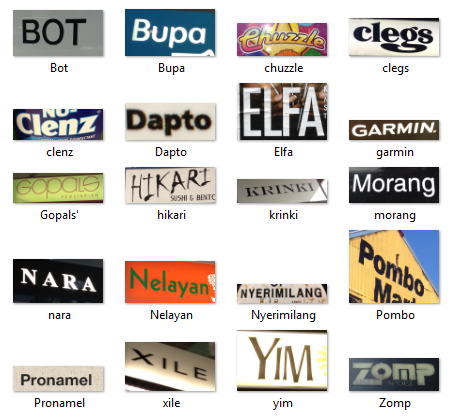
A key criticism leveled at the very sensible use of nonsense words to assess children’s awareness of sounds and spelling pattern knowledge is that they don’t mean anything.
But how true is that?
In the UK all Year 1 children’s reading word attack is now tested via a Phonics Screening Check, so I thought I’d ask Google for definitions of some of its example nonsense words:
Open and closed syllables
86 Replies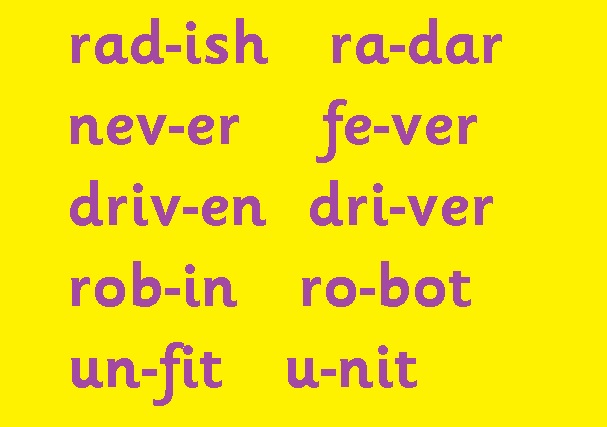
The first syllables in words like “atom”, “centre”, “filter”, “shopping”, “rubbish” and “pullet” contain a “short” vowel, which must be followed by a consonant in English. These are sometimes called “closed” syllables.
The first syllables in words like “paper”, “being” “final”, “hoping”, “brutal” and “future” end with a “long” vowel, and are sometimes called “open” syllables.
Tackling one syllable at a time
When learners start reading and spelling multi-syllable words, it’s useful to get them to practice reading and writing words which contrast “closed” and “open” syllables.
Have a go spelling
13 Replies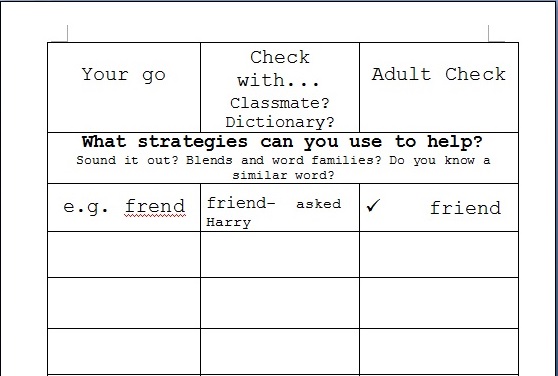
In class, many of the students I work with are encouraged to "have a go" at spelling words that they aren't sure how to spell.
Often this happens when they have spelt a word incorrectly in their first draft of a piece of written work.
The teacher then points out the error, but doesn't correct it.
Instead, the student is encouraged to problem-solve the spelling, by asking classmates, trying to sound it out, thinking about word families or similar words, or looking it up in a dictionary.
If you google "have a go spelling", you can even find a free workbook for this purpose. The front of it looks like this (the fonts are a bit out of whack because I don't have the SA school font, but it is an MS Word document so this could be easily fixed):
The remaining pages have three columns: one for the word as misspelt, one for the student's "go" and one for the correct spelling as checked by an adult.
Level 8 Workbook
0 Replies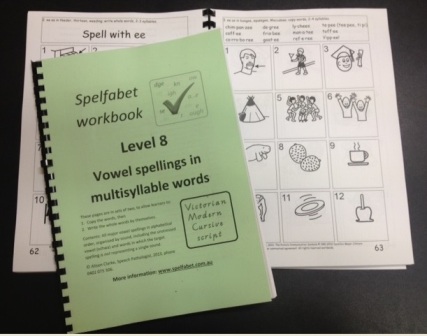
Oh my goodness, I've finally finished my Level 8 workbook, and put it in this website's shop.
I hope it fills what I see as a gap in the market for systematic spelling activities which help learners understand and manage syllable boundaries and vowel spellings in multi-syllable words.
It's my longest workbook yet, with 194 pages, designed for literacy learners who have grasped the basics of vowel spellings in one and two-syllable words but want to build on this, and really get their heads around the main sounds for each major vowel spelling.
There is a brief video tour of this workbook on YouTube – click here to see it.
Spellings covered
The workbook covers the following vowel spellings in multisyllable words: a, a…e, ai, air, ar, are, au, aw, ay, e, e…e, ea, ear, ee, eer, ei, er, ew, i, i…e, ie, igh, ir, o, o…e, oi, oo, or, ou, ow, oy, u, ue, ur, ure, y and y…e (see below for the full list of sound-letter relationships covered).
Milo’s read and grab word game
1 Replies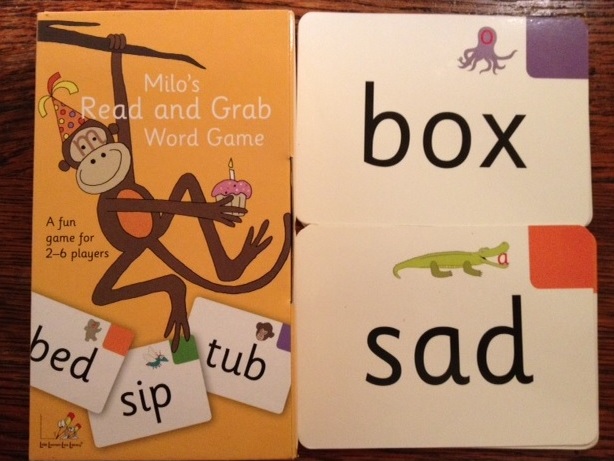
In the last couple of days I’ve been using a great little card-stealing game with groups of Grade 1 and 2 students, who have consistently squealed with delight as they stole each other’s cards, called it “the funnest”, and wanted to keep playing it long after I was ready to do something else.
So I think it’s time for a blog post about this nifty little game.
Maureen Pollard from Little Learners Love Literacy made it up and publishes it, and gave the simplest version of it to me when we went out for a drink a few weeks ago (thanks Maureen!) to share ideas about how to get schools to take up synthetic phonics, and commiserate with each other about how difficult it is.
I got my groups to play it a couple of weeks ago, thought it was great, lent it to one of their teachers, and then the following week found the kids were asking, “Can we play the stealing game?”, and being unimpressed that I didn’t have it.
Creative writing
6 Replies
One of the things very young children are encouraged to do in my local schools is creative writing. Putting your personal ideas on paper is a highly valued skill in our education system.
Of course, the kids I work with can’t do it. They stare at the blank page and get some chicken scratchings down, but their letters are poorly formed, they can’t spell the words they want to write, and quite often when they’re finished, even they can’t read it. The whole process makes them feel like failures.
These children have creative ideas, all right, and all but the language-impaired ones can easily tell you about them. In fact, sometimes it’s hard to stop them from talking about their creative ideas long enough to get some written work done. I’m currently a working with one Grade 2 group which is an exercise in hilarity, as they riff off the words we’re working on spelling, one-up each other with funny stories, and devise alternative endings for my decodable books.
 In praise of Creative Talking
In praise of Creative Talking
I recently came across the following by teacher Fay Maglen in the very useful but now apparently out-of-print book Wordswork:
“…adults expect written evidence of work and creative expression too early, to the point, perhaps, of inhibiting the free flow of oral expression. Certainly it would seem that in some classrooms more value is placed on what children write than on what they say…
Updated spelling tests
2 Replies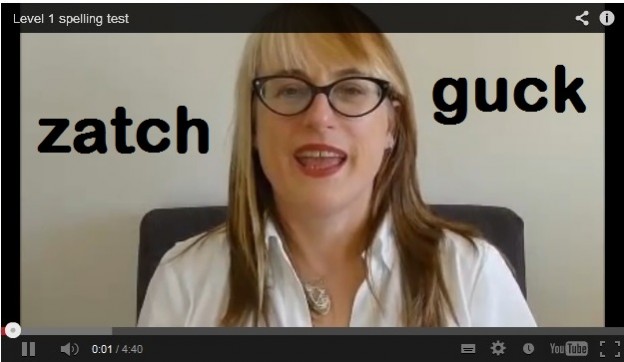
Last month, the Australian Bureau of Statistics released its 2011-2012 adult literacy survey, which found that 44% of adults don’t have good enough literacy to cope with the complex reading and spelling demands of modern life.
This means very little has changed since the first such survey in 1996, when 46% of adults were found to be struggling, despite the millions of dollars that have been poured into adult literacy programs since then. How depressing.
Reading about the new data has motivated me to update my website’s non-word spelling tests, and add introductory videos for both adults with literacy difficulties and parents concerned about their child’s literacy.




